ディケンズ『ピクウィック・クラブ』あらすじと感想~ドストエフスキー『白痴』に強烈な影響!19世紀イギリス版ドン・キホーテ!

イギリスで空前の大ブーム!19世紀イギリス版ドン・キホーテ!ディケンズ『ピクウィック・クラブ』
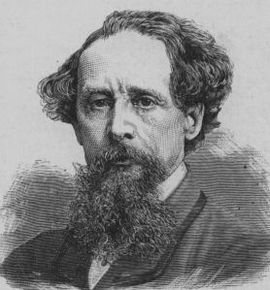
『ピクウィック・クラブ』は1836年に連載が開始されたディケンズ最初の長編小説です。
私が読んだのはちくま文庫、北川悌二訳の『ピクウィック・クラブ』です。
この作品はセルバンテスの『ドン・キホーテ』を意識して書かれ、ドストエフスキーの代表作『白痴』にも多大な影響を与えた作品です。
ではさっそくあらすじを見ていきましょう。
実業界を引退したゆたかな紳士ピクウィック氏は、素朴な人柄で、人間愛に満ちた人である。彼は行く先々で人を助け、悪をこらしめようと力をつくす。しかし、人がよすぎて、かえって失敗ばかり……。明るく楽しい笑いの底に人間回復の願いを託す、ディケンズ最初の長篇小説。
ちくま文庫、北川悌二訳『ピクウィック・クラブ』裏表紙
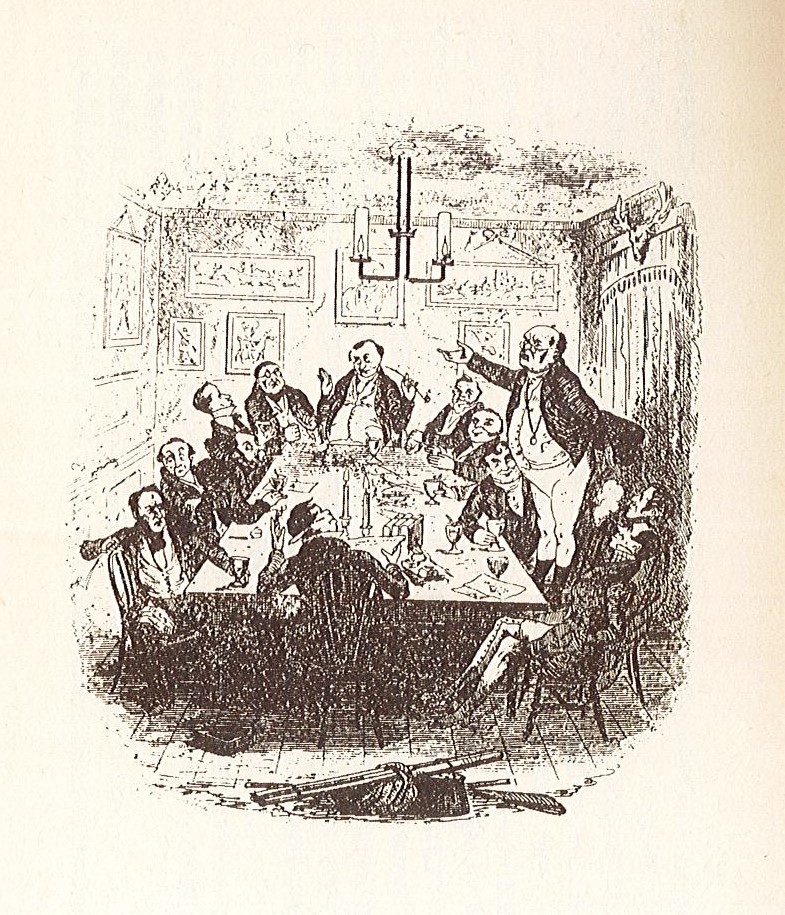
こちらの挿絵で椅子の上に立ち上がっている人物こそ、善良なるイギリスの「ドン・キホーテ」ことピクウィック氏になります。
禿げ頭に丸眼鏡、ぷっくりしたお腹周りにぴっちぴちの白ズボンという特徴的な見た目をしております。
巻末の解説に『ピクウィック・クラブ』について非常にわかりやすい概説がなされていたのでそちらを紹介します。
本小説の主人公ピクウィック氏は実業界を引退した富裕な紳土であるが、無邪気で素朴で、慈愛と人間愛の化身とでもいうべき人物である。彼はその遍歴のさきざきで悪人をこらしめ、苦境にある人を救い、虚偽をあばき、世の不正を正そうとする。しかし彼の人柄があまりにも善良で、その善意があまりにも純粋なために、悪人の奸計にかかって滑稽な失敗ばかり演じてしまう。彼のひきおこす笑いはひとえに彼のこうした義侠心と人間愛から生まれたものであり、それ故ピクウィック氏のまわりには、いつも明るく楽しい笑いの渦がひろがってゆく。
彼はサム・ウェラーという従者をつれているが、これは元気のいい生粋のロンドン子で、世間のことなら何でも実によく心得ているが、忠実に主人に仕えている。こうした従者をつれたピクウィック氏は、サンチョ・パンサをお供にして武者修行の旅に出たドン・キホーテにそっくりである。
『ドン・キホーテ』の笑いは多岐にわたり甚だ複雑であるが、その笑いの中心は、騎士道の理想にもえるドン・キホーテの高貴な理想と夢とがあまりに卑俗で散文的な現実と衝突し食い違う所から生まれている。『ピクウィック・クラブ』の場合も、全く同様にピクウィック氏のあまりに無垢な善意と高貴な人間愛が、十九世紀イギリスの卑俗な現実と矛盾し食い違うところから笑いが生まれている。
ちくま文庫、北川悌二訳『ピクウィック・クラブ』中巻P478-479
※一部改行しました
たしかにこの作品は『ドン・キホーテ』とそっくりな点が多々あります。
ディケンズが19世紀イギリスを舞台にしてドン・キホーテを蘇らそうとした意図がはっきりと見えます。
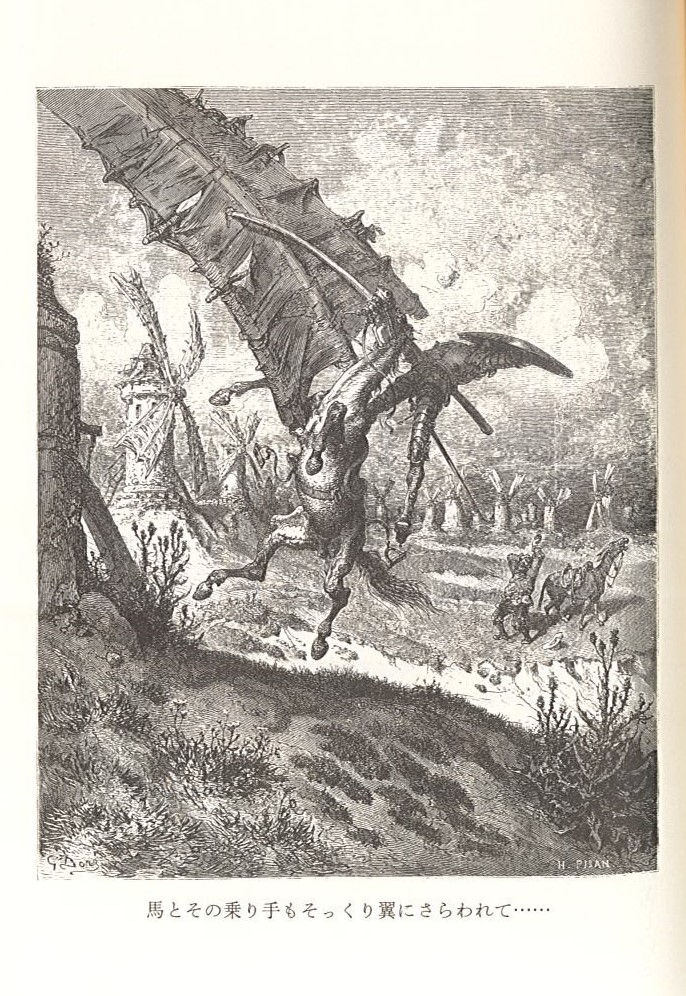
そしてそのくすっと笑ってしまうユーモアも見事に再現しています。

こちらはそんな愉快なシーンのひとつなのですが、狩りに出かけた仲間たちとキンキンに冷えたポンスというお酒を飲んでいる内に不覚にも眠り込んでしまったピクウィック氏が、ちょうどそのタイミングで一人取り残されてしまいました。
しかもちょうどそんな時に土地のオーナーである大尉がやってきてピクウィック氏を発見。彼を不法侵入者だと疑います。
「この悪党め、お前はだれだ?」太いステッキでピクウィック氏の体をいく度かつっついて、大尉は言った。「お前の名前はなんて言うのだ?」
「冷えたポンス」ふたたび眠りこみながら、ピクウィック氏はつぶやいた。
「なんだって?」ボールドウィッグ大尉はたずねた。
返事なし。
「こいつは自分の名前をなんて言ったんだ?」大尉はたずねた。
「ポンスだと思います」ウィルキンズは答えた。
「それはやつの厚かましさ、いまいましい厚かましさだ」ボールドウィッグ大尉は言った。
「やつはいま眠ったふりをしているのだ」憤激して、大尉は言った。「やつは飲んだくれ、飲んだくれの平民だ。ウィルキンズ、やつを車で運んでしまえ、すぐに運んでしまえ」
ちくま文庫、北川悌二訳『ピクウィック・クラブ』上巻p464-465
こうして彼は連れていかれてしまい、動物たちが入れられている囲いの中に放置されることになってしまったのです。
ピクウィック氏が目を覚ますと周りには人だかりが。彼はすっかり見世物になってしまったのでした。
もうひとつ、
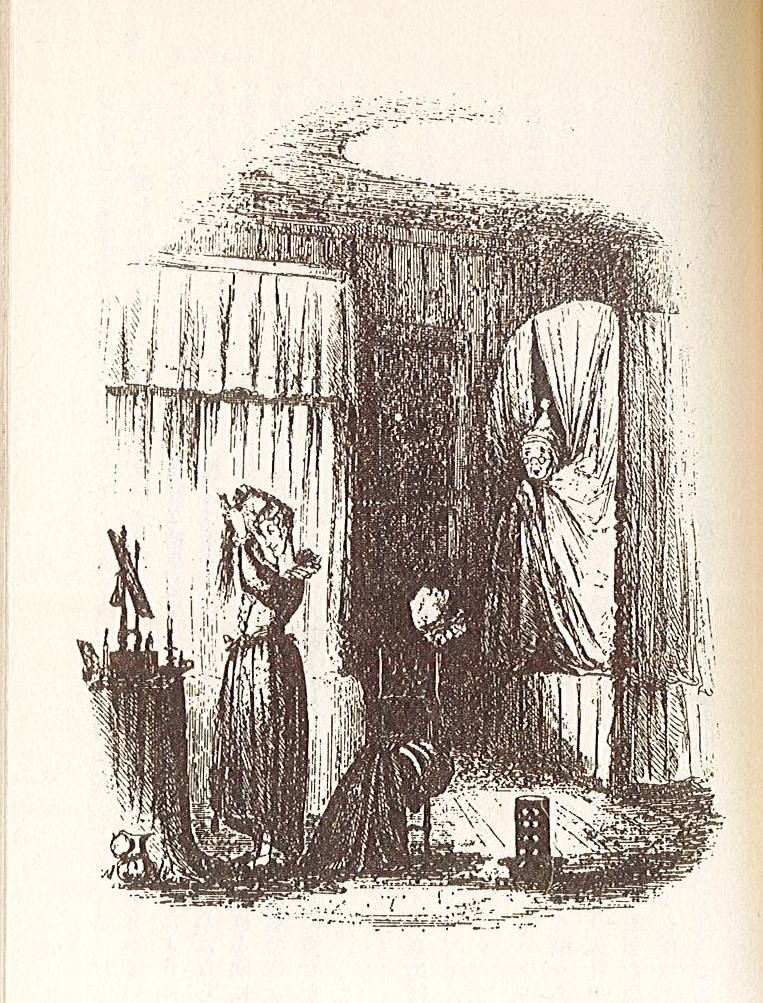
宿泊していた宿でピクウィック氏は夜中にうっかり違う人の部屋に帰ってしまいました。
そしてなんとも間が悪いことにそこに中年の女性が帰って来てしまうのです。
この時のピクウィック氏と夫人のやりとりがまた面白くてたまりません。
狩りの一連の場面とこの部屋を間違えたピクウィック氏の場面は何回読んでもくすっとしてしまいます。記事を書いている今もくすっとしています。
『ピクウィック・クラブ』はそれほど面白く、ユーモアたっぷりに書かれています。この辺も『ドン・キホーテ』とそっくりです。『ドン・キホーテ』も思わずくすっとしてしまうシーンが満載でした。
当時イギリスでこれを読んでいた人たちは大笑いし、イギリス中がピクウィック氏の活躍を毎週毎週心待ちにしていたそうです。
ドストエフスキー『白痴』と『ピクウィック・クラブ』の関係性
さて、イギリス中に大旋風を起こしたディケンズの『ピクウィック・クラブ』ですが、ロシアにいたドストエフスキーもこの作品を愛読していました。
そしてこの作品はドストエフスキーの代表作『白痴』に大きな影響を与えることになります。巻末の解説を見ていきます。
ドストエフスキーはディケンズの小説の非常な愛読者であった。彼がシベリア流刑の時期にいつも読んだのはディケンズの『ピクウィック・クラブ』と『デイヴィッド・コパーフィールド』(一八四九-五〇)だけだったということである。彼は『白痴』(一八六八)の第一部が完成した頃、姪にあてた手紙で『白痴』の意図は「きわめて善良な人間」を描くことであると語り、本当に善良な人間な描くことがどんなにむずかしいかを述べてから、
「全世界において、きわめて善良な人間はキリスト唯一人です。……キリスト教国の文学のうちで最も完全な善良の型はドン・キホーテです。しかし披は同時に滑稽であるがために、はじめて善良なのです。ディケンズのピクウィック(ドン・キホーテよりは着想は貧弱ですが、それでも巨大な人物です)もまた滑稽な人物で、このために成功しているのです。自己の価値を知らない、嘲弄の的となる善良な人物にたいしては、同情の感情が生まれるものです。かくて読者のうちに同情心が喚起されます。この同情心がよびさまされるということが、ユーモアの秘訣なのです」(カー著『ドストエフスキー』第十五章、中橋一夫・松村達雄訳)
と述べ、ムイシュキン公爵にこうしたユーモアのないことをなげいているが、さすがに彼の鑑賞と批評は鋭く、ピクウィック氏におけるユーモアと善良さとの深いつながりを巧みに見抜いている。
ちくま文庫、北川悌二訳『ピクウィック・クラブ』中巻p478
※一部改行しました
ドストエフスキーは『白痴』においてロシアにおける「完全に美しい人」を書こうと志していました。
「完全に美しい人」とはとりもなおさずキリストその人であり、過去における最大の成功作は『ドン・キホーテ』で、その次に出てくるのが『ピクウィック・クラブ』だったのです。
ドストエフスキーはドン・キホーテとピクウィック氏を詳細に分析し、その人物の特徴を捉えていきます。そしてその分析の結果、『白痴』の主人公ムイシュキン侯爵にその特徴を与えることになるのです。
『白痴』を読んだ方なら次の文章を読むと驚くかもしれません。ピクウィック氏の特徴をディケンズ研究者の島田桂子氏は次のように述べています。
単純で無垢な者は、何ものにも捕らわれることのない目をもって、自由に偏見をもたずにこの世の現実を見ることができる。
子どもの目を待ったピクウィック氏は、すべてのものを、疑問を持たずにそのまま受け止め、観察したままを報告する。ピクウィック氏はただ自分のレンズを通して報告するだけで、観察した人物や事柄の意味を分析したり、意見を述べたりすることはない。
ジングルとジョブ・トロッターに騙されたことが初めて分かったとき、「彼は一語もしゃべろうとせず」、ただ「とまどい、びっくりして」しまうだけだ。ピクウィック自身はただ驚いているだけであり、この世の堕落の意味も、そのグロテスクさも理解してはいない。
それはまるで、外国人が見ず知らずの国にやってきて、そこで体験した驚きの出来事や失敗談を語っているかのような感覚を読者に与える。彼らはこの世において、まさに、外国人である。
外国人の目によって、初めて自分の国の奇妙さに気づかされるということがあるように、ピクウィック氏の無垢な目によって、読者は、自国の法律、宗教、マスコミ、政治、学問、芸術の世界に蔓延している欺瞞と腐敗と怠慢の実態を知らされ、この世の堕落したグロテスクさに気づかされるのである。
彩流社 島田桂子『ディケンズ文学の闇と光―悪を照らし出す光に魅入られた人の物語』P45-46
※一部改行しました
これはまさしくそっくりそのまま『白痴』の主人公ムイシュキン侯爵に当てはまる解説なのです。
私もこれには驚きました。
たしかにピクウィック氏とムイシュキン侯爵はこの点でそっくりなのです。
しかもこの二人はどんなに騙されたりひどい目に遭っても、相手を許します。
この「相手を許す」という性格もイエス・キリストをかたどったからこその共通点なのです。
また、最後にもう一つ重要なお話をご紹介します。
ピクウィック氏の忠実な従者サム・ウェラーが主人のピクウィック氏について述べた言葉です。
「いいかね、ピタリついたズボンとゲートルを着けた天使なんて、おれは聞いたこともないし、物語の本でも読んだこともないし、絵で見たこともないんだがね、―また、眼鏡をかけた天使もね、考えてみると、そいつは逆さにつけられていたかもしれんけどね―だが、おれの言うことをよく聞けよ、ジョップ・トロッター、あの人は、それにもかかわらず、まったくの純血種の天使なんだ。もっとりっぱな人を知っている人がいたら、ひとつその人に会ってみたいもんだよ」
ちくま文庫、北川悌二訳『ピクウィック・クラブ』下巻p181
ピクウィック氏を最も近いところから見続けていた従者のサム・ウェラーは心底彼に惚れ込み、「純血種の天使」のようにいい人だと感嘆しています。
そしてそれはサム・ウェラーだけではなく、作中の登場人物皆が彼のことを好きにならざるをえません。それほど彼はいい人で、たくさんの人から愛されているのです。
これは『白痴』におけるムイシュキンも同じです。彼もすべての人から愛される不思議な力を持っているのです。
これまで上で述べてきたことはキリスト―ドン・キホーテーピクウィック―ムイシュキンと明確に受け継がれてきた性質です。
ドストエフスキーの『白痴』はディケンズが19世紀イギリスで成し遂げたことを、ロシアで行おうとして生み出された作品です。(※もちろん、これだけが絶対的な動機というわけではありませんが)
『ピクウィック・クラブ』がドストエフスキーに甚大なる影響を与えたと言われるのはこのような背景があったのです。
おわりに
ディケンズ作品の中で『ピクウィック・クラブ』は、ドストエフスキーを学ぶ上で最も重要な作品です。
ドストエフスキーの代表作『白痴』に与えた影響もさることながら、ディケンズのユーモアは彼の人生の大きな糧となったことでしょう。
最後に『ピクウィック・クラブ』に対する島田桂子氏の言葉を引いてこの記事を終わります。
この作品はディケンズの作品の中でも、もっとも愛され、聖書に次ぐべストセラーとなった。それは、当時、社会にはびこる悪と不正に苦しみ、希望に飢え渇いていた多くの読者が、この喜劇的創造の最高峰に大笑いしながら、この世における神の国の実現の可能性という希望を見ていたことを示すものである。彼らもまた、サムに続いてピクウィック・クラブの新たな会員となったであろう。
彩流社 島田桂子『ディケンズ文学の闇と光―悪を照らし出す光に魅入られた人の物語』P60
ディケンズの『ピクウィック・クラブ』は日本ではあまり知られていませんが、ドストエフスキーのみならず世界中に影響を与えた作品です。
私もつい最近までこの作品を知りませんでしたが読んでみて納得、とても面白い作品でした。
以上、「ディケンズ『ピクウィック・クラブ』あらすじ解説―ドストエフスキー『白痴』に強烈な影響!19世紀イギリス版ドン・キホーテ!」でした。
Amazon商品ページはこちら↓
次の記事はこちら

前の記事はこちら

ディケンズのおすすめ作品一覧はこちら
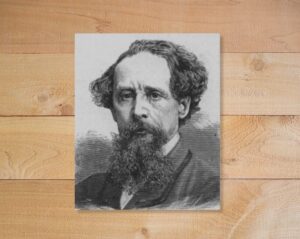
関連記事
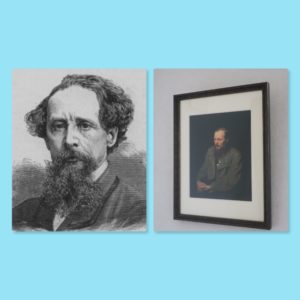


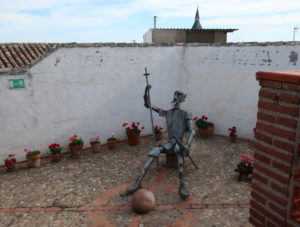







コメント